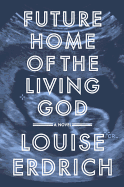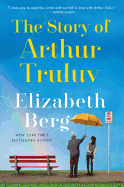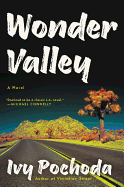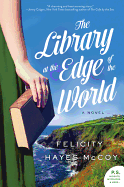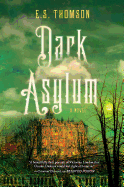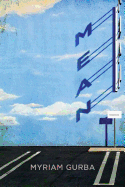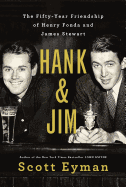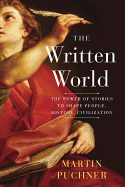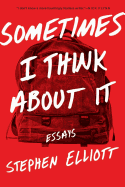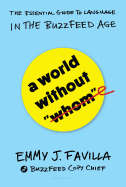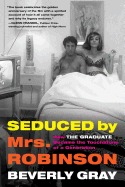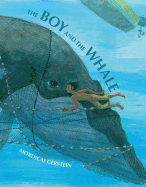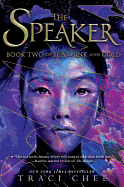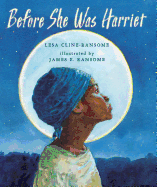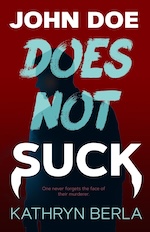Celebrate Indies First Tomorrow
 It's that most wonderful time of the year again. Indies First 2017, which takes place tomorrow, gathers together authors, readers and publishers to support independent bookstores. Across the U.S., writers and local celebrities are volunteering at events for, as the American Booksellers Association wisely puts it, "a day which is dedicated to supporting the local businesses that help communities thrive."
It's that most wonderful time of the year again. Indies First 2017, which takes place tomorrow, gathers together authors, readers and publishers to support independent bookstores. Across the U.S., writers and local celebrities are volunteering at events for, as the American Booksellers Association wisely puts it, "a day which is dedicated to supporting the local businesses that help communities thrive."
If you're reading this newsletter, you probably don't need a pep talk to visit your favorite local bookstore. But for a little added incentive, check out this amazing video featuring critically acclaimed and award-winning author Jason Reynolds, who is the 2017 Indies First spokesperson. He has some great things to say about the intrinsic value of indies in the lives of book people.
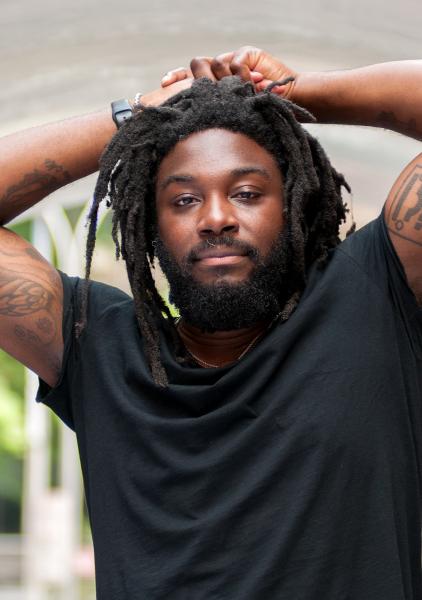 |
| Jason Reynolds |
"Let's put some love back into the places that have shown us so much love," he advises, adding: "Support your independent booksellers because, at the end of the day, that bookstore in your neighborhood is your bookstore. It's yours. But it only matters if you make sure that they know you want it there. And the best way to let them know you want it is to show some love. Not just with your dollars--though they do need your dollars--but also with your presence, with your energy.
"Bookstores aren't just for selling books. They're also community spaces. We need them more than we often give credit to. Let's make sure that we show up. Let's make sure that we're there, that we're communing with one another, that we're buying books, but also that we're talking to our neighbors and getting to know the people around us. Booksellers are heroes, and on the 25th of November I plan, and I hope that my fellow authors plan, to let that be known to the world, that booksellers are heroes."
We hope you'll show some Indies First love to your favorite local bookstore tomorrow. Have fun! --Robert Gray, contributing editor
Celebrate Indies First Tomorrow
Emmy Favilla: A Lighthearted Approach to Language
 |
| photo: Taylor Miller |
Emmy J. Favilla is the copy chief for BuzzFeed and the architect of its house style guide. Her first book, A World Without 'Whom': The Essential Guide to Language in the BuzzFeed Age, explores Favilla's and BuzzFeed's approach to language in the Internet era. Our review is below.
What prompted you to write a book about the BuzzFeed style guide and the changing world of language on the Internet, especially since the style guide itself is available online and constantly changing?
This is more a book about not resisting changes in language, which we're seeing happen organically online with BuzzFeed, than it is a style guide. I do touch on style issues with some of the specific guidelines I explore. But the book is an ideology, and a documentation of how language has shifted, with the exception of the word lists I include in the first appendix. And even those have changed: I started working on the book over two years ago and I've had to make a lot of changes along the way, even in the final round of edits. So it's both a record of how language has evolved and an exploration of the attitudes I think would be beneficial to have toward it.
I love your common-sense (commonsense? common sense?) approach to copyediting: use your judgment, follow your heart, etc. Can you talk a bit about that?
A lot of that approach is rooted in the fact that BuzzFeed has a pretty lean copy desk. I know we're lucky to have one at all! But we're still a small team compared to the amount of content we publish every single day.
As I realized how much we had to deal with, I decided to stop worrying about a lot of these things. Who cares if you spell out the word okay or use OK instead? This is not going to stop the reader in their tracks! Or did someone use en dashes instead of em dashes in their whole article? I'm not going to waste my time changing every single one, when there are a dozen more stories in my queue for the day.
We do still have conversations about this stuff, as evidenced by the Slack and e-mail exchanges included in the book. The correct spelling of "doughnut" or "donut," for example, has become a running joke. Sometimes we're split down the middle and we figure that you can truly go either way. It's really more important to ruminate on stuff like "Is this an inclusive way to talk about all genders?" than "Does this comma go here?"
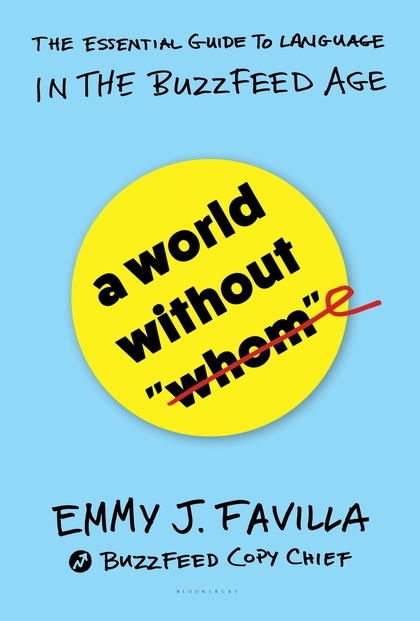 The Slack exchanges in the book are so entertaining: How did your colleagues feel about making recurring guest appearances?
The Slack exchanges in the book are so entertaining: How did your colleagues feel about making recurring guest appearances?
All of my coworkers were really good sports about my including their e-mails, screenshots, Slack exchanges, etc., in the book. My sense is that they all seem pretty excited to be able to share our very nerdy everyday process. And it gives some context to the book and the process: this isn't just me sharing my crazy, radical opinions. These are real conversations, and they give a lot of background and support to the arguments I lay out. I feel very lucky to work with such intelligent and witty editors.
Do you consider yourself a linguistic or grammatical rebel?
I'm a rebel of sorts in the copy-editing world. I think a lot of people who work on the Internet overlap with my ethos. But there are certain ways in which I'm still a bit of a stickler: I don't think we should totally ignore conventions about grammar, punctuation, spelling and other things that make it easier for readers to understand a piece of writing.
What do you most hope people take away from the book?
I hope people read the book and feel a sense of relief and freedom from the sort of rules that have been ingrained in us since grammar school. I wanted to write a very non-academic, lighthearted rumination on language, and convey that people can agree or disagree with me and it's fine either way. I hope people step away with the sense that "I don't need to hold my breath and worry about where this comma goes."
Obviously, the book is intended to appeal mostly to writerly types: editors, bloggers, grammar nerds, English majors. But I hope it might also appeal to a broader range of people who are interested in how technology has helped move language along, and the shifts in it that are happening all the time. --Katie Noah Gibson, blogger at Cakes, Tea and Dreams
Emmy Favilla: A Lighthearted Approach to Language
The Wisdom of Wonder
The wisdom of R.J. Palacio: Bustle showcased "13 Wonder book quotes that will inspire you to choose kind (and go see the movie)."
---
Bestselling author Lee Child "shares tips for using research and dialogue in writing" with Signature.
---
From Chaucer's cottage farm to the birth of the organic movement, farmer-author Rosamund Young chose her "top 10 books about pastoral life" for the Guardian.
---
Colossal displayed "laminated jewelry crafted from vintage books by Jeremy May."
---
"Do we actually know what Shakespeare looked like?" asked Mental Floss.
---
The MinimumBook bookcase "is characterized by a single bar in stainless steel and a series of shelves in solid seasoned rooted oak... attached to the bar by nuts and bolts in stainless steel," Bookshelf noted.
Rediscover: Mudbound
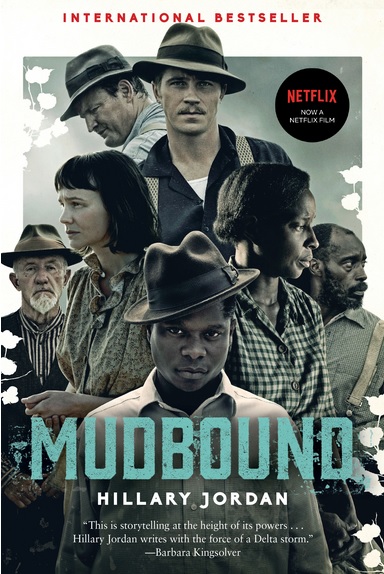 Hillary Jordan's debut novel, Mudbound (2008), takes place on the Mississippi Delta in 1946, where Henry McAllen and his wife Laura work a cotton farm with Henry's father. Laura struggles to raise two young daughters in primitive conditions, deal with her bigoted father-in-law, and manage the sea of mud that isolates their farm whenever it rains. Meanwhile, two World War II veterans, white Jamie McAllen and black Ronsel Jackson, return to the Delta to face battles with post-traumatic stress disorder and racial hatred. Mudbound received critical acclaim and won the 2008 Bellwether Prize for Fiction, among other accolades. Jordon is currently at work on a sequel, Fatherlands, about the illegitimate son of black GI Ronsel Jackson and a German mother. Her second novel, When She Woke (2011), was a dystopian reimagining of The Scarlet Letter, in which criminals have their skin color altered to match their crimes.
Hillary Jordan's debut novel, Mudbound (2008), takes place on the Mississippi Delta in 1946, where Henry McAllen and his wife Laura work a cotton farm with Henry's father. Laura struggles to raise two young daughters in primitive conditions, deal with her bigoted father-in-law, and manage the sea of mud that isolates their farm whenever it rains. Meanwhile, two World War II veterans, white Jamie McAllen and black Ronsel Jackson, return to the Delta to face battles with post-traumatic stress disorder and racial hatred. Mudbound received critical acclaim and won the 2008 Bellwether Prize for Fiction, among other accolades. Jordon is currently at work on a sequel, Fatherlands, about the illegitimate son of black GI Ronsel Jackson and a German mother. Her second novel, When She Woke (2011), was a dystopian reimagining of The Scarlet Letter, in which criminals have their skin color altered to match their crimes.
On November 17, a movie version of Mudbound was released on Netflix and in select theaters. Dee Rees, whose previous work includes Pariah (2011) and Bessie (2015), adapted and directed the film. Carey Mulligan, Garrett Hedlund, Jason Clarke, Jason Mitchell and Mary J. Blige star in this period drama that has already achieved remarkably positive reviews. On October 31, Algonquin published a movie tie-in version of Jordan's book ($15.95, 9781616208417). --Tobias Mutter
Book Review
Fiction
Future Home of the Living God
by Louise Erdrich
National Book Award-winning author Louise Erdrich (The Round House) surprises and unnerves in Future Home of the Living God, a dystopian depiction of a world on the brink of collapse, and one woman's battle to protect herself and her unborn child. Cedar, an adopted Ojibwe raised by a loving Midwestern family, is pregnant. But fertility rates are down, and even fertile women have been unable to survive labor. As the increasingly religious government begins abducting pregnant women under the guise of protecting the human race, Cedar must fight to maintain her freedom, ensure her survival and protect her unborn child.
Balancing nimble writing with thematic gravitas, this speculative novel establishes Erdrich as a powerful and distinctive voice in the genre. Known for her literary fiction, she never allows her high-concept plot to overwhelm her beautiful prose and gripping voice. She imagines a rich dark world that reverberates with mysticism rather than becoming entrapped in the gritty realism common in dystopian literature. And while Erdrich proves her ability to craft a thrilling story, this novel nonetheless resists any urge to ignore culture and identity in the face of catastrophic events. Her expansive characters battle the concept that individual representation, both gendered and ethnic, must be ignored for the sake of survival. By focusing on the complexities of love, trust and motherhood, Future Home of the Living God suggests that there is no larger conflict than that of the human soul. --Alice Martin, freelance writer and editor
Discover: With her captivating voice, Louise Erdrich crafts a devastating literary dystopia that will appeal to fans of Margaret Atwood.
Harper,
$28.99,
hardcover, 288p., 9780062694058
The Story of Arthur Truluv
by Elizabeth Berg
In The Story of Arthur Truluv, Elizabeth Berg (The Dream Lover) focuses on contrasting characters whose lives share common threads of loneliness and isolation: Arthur Moses is an 85-year-old grieving the loss of his beloved wife, Nola Corrine. A retired parks groundskeeper and an amateur gardener, he rides a bus everyday to the cemetery and eats his brown bag lunch graveside with Nola. There, he takes comfort in cleverly conjuring visions of the dead in surrounding, underground graves--"Nola's neighbors"--and he imagines the lives they might have lived. The simple gesture of a hand wave brings Maddy Harris--an 18-year-old with a nose ring, who also finds graveyards comforting--into Arthur's life.
Maddy calls the dead "her people," as her mother died in a car crash two weeks after Maddy was born. The tragedy and its aftermath drove a wedge between her and her father, who, tormented by his own grief, emotionally rejected his daughter and ultimately shaped her into a loner. When forlorn Maddy meets compassionate Arthur, their shared affinity for the dead sparks an unlikely friendship. She nicknames him "Truluv" because he speaks with glowing devotion for his late wife. Gradually added to the mix is Lucille, Arthur's meddlesome, 83-year-old, never married next-door neighbor, who faces a shattering loss of her own.
Berg's vivid characters may be vastly different in age, worldview and temperament, but they express a universal need for love, acceptance, purpose and connection. Tender, colorful strokes of humor dot the landscape of this touching story that deepens with poignancy and profound insights into the perils and glories of the contemporary human condition. --Kathleen Gerard, blogger at Reading Between the Lines.
Discover: An 85-year-old childless widower, a misfit 18-year-old girl, and a never-married 83-year-old woman form a life-changing friendship.
Random House,
$26,
hardcover, 240p., 9781400069903
Wonder Valley
by Ivy Pochoda
Everybody's on the run from something in Ivy Pochoda's third novel, Wonder Valley, which features a broad cast of Southern California criminals, deadbeats, dreamers and frustrated never-quite-making-it professionals. Pochoda (Visitation Street) unfolds their stories one by one. There's the Beverlywood two-bit studio lawyer Tony, who left his white-shoe Chicago firm to escape a scandal. A young gangbanger wannabe from Brooklyn, Ren is searching L.A. for the mother who abandoned him during his five years in juvie. Britt is a USC full-scholarship tennis jock who took off after a drunken Laurel Canyon car crash. A couple of hard-time criminals are trying to duck the cops after an armed robbery in Vegas. And twin teens Owen and James are adrift in the city following their escape from their parents' Howling Tree Ranch, a chicken farm/commune in the desert outside Twentynine Palms.
Pochoda smoothly and deliberately moves the story of her gritty troupe between events in 2006 and 2010. Her eye for detail rarely misses a thing. Across the four years of the novel, her troubled characters try to shake off the mistakes and misfortune of their pasts and make something new of their lives.
Wonder Valley is not exactly a crime novel, although there are plenty of criminals and crimes. There is no mystery to solve. However, as Pochoda gradually ties up her not-so-loose ends, it becomes a novel of the quest for connection, redemption and ultimately release. In short, it's about escaping demons and reshaping lives. --Bruce Jacobs, founding partner, Watermark Books & Cafe, Wichita, Kan.
Discover: In Ivy Pochoda's accomplished third novel, drifters and criminals look for something like salvation in each other and the promise of Southern California.
Ecco,
$26.99,
hardcover, 336p., 9780062656353
The Library at the Edge of the World
by Felicity Hayes-McCoy
The Library at the Edge of the World, the first novel in a proposed trilogy, introduces readers to Hanna Casey, a 51-year-old who left the Finfarran Peninsula--a fictitious setting on the west coast of Ireland--to attend university in London. There, she became a museum art librarian, but later forfeited her career for love--marrying Malcolm, a barrister, and giving birth to their daughter, Jazz, while enjoying a cultured life. But after 25 years of marriage, when Hanna learns that Malcolm has been cheating on her with a good friend, she leaves him--returning home and taking refuge at her mother's small house on the peninsula. Prideful and stubborn about the settlement with her ex, Hanna lands a job at the local library. She remains broke and at odds with her brash, opinionated mother. She also bears the brunt of small-town gossip, and misses Jazz, now based in France while traveling for her airline job. Driving a mobile library book van between rural coastal towns keeps Hanna afloat as she tries to finance the renovation of an old, rundown cottage left to her by a great-aunt. Along the way, the library faces a challenge that puts Hanna's dream in jeopardy and rattles the whole town.
Felicity Hayes-McCoy (The House on an Irish Hillside) crafts her characters well. Rich details of the Irish countryside, along with colloquial expressions and literary references, enhance an enchanting story about self-reliance, coming home and starting over. --Kathleen Gerard, blogger at Reading Between the Lines
Discover: A divorced, middle-aged librarian returns to her Irish hometown to remake her life and an old, rundown cottage.
Harper Perennial,
$15.99,
paperback, 368p., 9780062663726
Mystery & Thriller
Dark Asylum
by E.S. Thomson
E.S. Thomson (Beloved Poison) unveils another gruesome chapter in the life of Jem Flockhart as she looks into a murder in a lunatic asylum. A female apothecary in Victorian London, Jem has lived her entire life disguised as a man. She has no love for Angel Meadow Asylum, a dark, hulking facility whose halls echo with the screams of its disturbed inmates. However, when abusive, phrenology-obsessed superintendent Dr. Rutherford is found dead with his ears removed and stuffed into his sewn-shut mouth, his own calipers sticking out of his head, Jem and her best friend and roommate, Will Quartermain, investigate.
Dark Asylum does for Victorian psychology (if such a word even applies to practices of the era) what Beloved Poison did for Victorian medicine, exposing the ignorant cruelty and indignities inflicted upon the mentally ill during a time when the idea of taking patients outside for leisure was revolutionary. To Thomson's credit, she does not cast the asylum's inmates as villains or cretins, but rather focuses on the inhumane conditions and barbarous treatments they suffer, including forced lobotomies and restraint, and punishment with devices now considered instruments of torture. Chills come from the oppressive, violent atmosphere, gruesome urban legends told by impoverished Londoners and visits to graveyards and other settings dank and grim. Jem is quick-witted and sympathetic to the plight of people deemed insane, as she is an outsider in danger of winding up in an asylum herself if the wrong person discovers her deception. Smart, spine-tingling and sprawling, this second outing shows Thomson has the staying power for a long and delightfully grotesque series. --Jaclyn Fulwood, blogger at Infinite Reads
Discover: In the return of Jem Flockhart, an apothecary and woman living as a man, murder at an insane asylum pulls the sleuth into the seedy heart of Victorian London.
Pegasus,
$25.95,
hardcover, 384p., 9781681775395
Biography & Memoir
Mean
by Myriam Gurba
Myriam Gurba's Mean is a memoir of growing up queer, mixed-race, Chicana and female in Santa Maria, Calif., in the 1980s and '90s. It is also a crime report, and a fantasy featuring ghosts, saints and martyrs. Race, class, sex, sexuality and sexual assault intersect in Gurba's own life and in the news, especially when the man who attacked her goes on to kill a woman in her community. Surprisingly, though, this is also a book capable of making readers laugh out loud.
The first chapter, "Wisdom," introduces a murder. Then Gurba flashes back to a childhood that confuses English with Spanish, because "I assumed we all had the same words." She takes readers from that childhood, with her growing grasp of the messy concepts of white and Mexican (her parents are one of each), as she matures into a young woman dealing with questions of body and sexuality common to teens, plus some exclusive to this particular slice of culture. The reader follows Gurba to college in Berkeley and beyond, as she continues to navigate family and other relationships.
Gurba approaches her grave subjects with acerbic humor and compassion, in a style all her own. She makes the form follow her unusual story. The title is important. "Being mean isn't for everybody. It's best practiced by those who understand it as an art form." Meanness is a weapon, a defense mechanism and a reaction; it is also part of Gurba's art. And yet her story and her storytelling voice are also loving and generous. --Julia Kastner, librarian and blogger at pagesofjulia
Discover: This memoir is remarkable for its unflinching candor, its adventurous style and its humor in the face of tragedy and absurdity.
Coffee House Press,
$16.95,
paperback, 160p., 9781566894913
Hank & Jim: The Fifty-Year Friendship of Henry Fonda and James Stewart
by Scott Eyman
Scott Eyman's engrossing, comprehensive and nuanced dual biography of Henry Fonda (1905-1982) and James Stewart (1908-1997) chronicles the Oscar-winning actors' private lives, careers and 50-year friendship. The two were a study of contrasts: Fonda was a fierce liberal, agnostic and workaholic who wed five times; Stewart was a Republican, church-going family man who was happily married for 45 years. Both were loners who found the right profession. "Acting allowed them to express emotions neither of them could have otherwise expressed, use experiences that they would have blocked," writes Eyman.
The friendship began in 1932, when the two struggling actors became roommates (with actor Myron McCormick and director Josh Logan). Both entered motion pictures in 1935, and within five years had become leading men competing for the same Best Actor Oscar in 1940 (Stewart won for The Philadelphia Story, but he voted for Fonda in The Grapes of Wrath). The two lived on opposite coasts in the 1950s, when Stewart's film career soared (Rear Window, Vertigo) and Fonda abandoned his film career for seven years to return to Broadway in Mister Roberts. In the 1960s and '70s, the duo co-starred in three films.
Thanks to fresh interviews with Jane and Peter Fonda and Fonda's widow, Shirlee, Eyman (Empire of Dreams: The Epic Life of Cecil B. DeMille) creates a particularly satisfying portrait of the conflicted and remote Fonda. Fans of both actors will enjoy Hank & Jim, a well-researched and absorbing biography that celebrates and humanizes two complex men and their enduring friendship. --Kevin Howell, independent reviewer and marketing consultant
Discover: Scott Eyman's well-researched and compelling dual biography of Henry Fonda and James Stewart celebrates two complex actors and their five-decade friendship.
Simon & Schuster,
$29,
hardcover, 384p., 9781501102172
History
The Written World: The Power of Stories to Shape People, History, Civilization
by Martin Puchner
As the general editor of the Norton Anthology of World Literature, Harvard professor Martin Puchner is superbly qualified to cover the subject of The Written World: The Power of Stories to Shape People, History, Civilization. Circling the globe and spanning human history from the invention of writing to the Internet age, Puchner's book is a lively account of how literature has transformed humanity.
The Written World proceeds in roughly chronological fashion, but Puchner structures his narrative around what he identifies as four stages of the story of literature: small groups of scribes responsible for assembling foundational texts like the Hebrew Bible; "teachers' literature" (written accounts of the words of charismatic figures like Jesus and the Buddha recorded by their followers); the emergence of individual authors like Cervantes; and the era of mass production and mass literacy. Whether it's the development of paper or the invention of the printing press, Puchner is also comfortable discussing the decisive impact of technology on the creation and dissemination of literary texts at every stage.
As he brings his account to a close, reflecting on the challenges rapid technological change will pose when it comes to preserving our literature for future generations, Puchner recognizes that we are "still in the middle of this, an ongoing story." Whatever form our literature may take in the coming centuries, this stimulating history leaves little doubt that its influence on every aspect of human life will be profound and enduring. --Harvey Freedenberg, attorney and freelance reviewer
Discover: Harvard professor Martin Puchner offers an invigorating global survey of literature's influence on the course of history.
Random House,
$32,
hardcover, 448p., 9780812998931
Essays & Criticism
Sometimes I Think About It: Essays
by Stephen Elliott
Personal essays are only as good as the author's voice. In his collection Sometimes I Think About It, Stephen Elliott (The Adderall Diaries) grounds each entry in an authentic, down-to-earth voice that conveys the pain of being human and moribund. With spare diction, Elliott writes of his abusive father, of living on the streets as a teen, of drug addiction and suicidal ideation.
Elliott has a nonchalant way of weaving dark subjects into greater narratives. His masochistic tendencies and morbid fascination with violent films are woven into sober examinations of his love life. In "Hate to Be Alone," he connects sadomasochism to his childhood trauma--"She liked to hurt people, and I liked to be hurt"--as if restaging that trauma in the bedroom could mitigate its long-lasting effects. Although his personal revelations are often unsettling, Elliott locates a tender vulnerability at the center of his struggles, and from there charts a course toward hope, if not redemption. "The difference between a happy ending and an unhappy ending is simply the place you decide to stop telling your story," he writes in "Sometimes I Think About Suicide."
The second half of the collection is more journalistic in scope as Elliott takes his world-weary voice on assignment, writing about a deadly landslide in Southern California, constant fighting and inhumanity in the Gaza Strip, juvenile criminal justice, and the music of Britney Spears, among other subjects. Sometimes I Think About It is dark, ruminative and piercing, depicting how tragedy and pain can actually bring people together. --Scott Neuffer, writer, poet, editor of trampset
Discover: In this far-reaching collection of essays, Stephen Elliott shares the painful experiences of his own life while examining greater struggles in the world.
Graywolf Press,
$16,
paperback, 256p., 9781555977757
Reference & Writing
A World Without 'Whom': The Essential Guide to Language in the BuzzFeed Age
by Emmy J. Favilla
Like many copy editors, Emmy Favilla dreams in punctuation marks: the cheeky parenthesis, the versatile ellipsis, the eloquent em dash. But she also dreams of a world "with peace and without whom [...], figurative literallys and comma splices frolicking about."
This vision may strike fear in the hearts of old-school editors everywhere. But Favilla, the copy chief for BuzzFeed, is determined to bring those English-major types along to her subjunctive-free utopia. After making headlines when she published the BuzzFeed house style guide online in 2014, Favilla has spoken widely about her decidedly casual approach to language. Her book, A World Without 'Whom,' is snappy and irreverent--but it's also thoughtful, well-informed and relentlessly commonsense. (And sprinkled liberally with em dashes.)
Favilla begins by tracing the (ongoing) evolution of the BuzzFeed style guide, which she compiled as her first editorial assignment at the site. She then delves into its broad sections, drawing distinctions between vital issues of clarity and sensitivity ("Getting Things Right: The Stuff That Matters") and other questions with more fluid answers ("Getting Things As Right As You Can"). Favilla illustrates her points throughout--sometimes literally--with GIFs, screenshots of Slack exchanges with her colleagues, and examples pulled from BuzzFeed stories. "Change is, after all, what keeps a language in business," she says, insisting that as language evolves, so should our approach to it. But while Favilla may be a linguistic rebel, she's not a total anarchist: she's always ready to poke fun at Strunk & White, but equally ready to insist on clarity, respect, practicality and a dash (em or en) of humor.
While it may induce cringing among red-pen wielders, Favilla's book will also provoke (literal) LOLs and may inspire a kinder, gentler, more free-flowing approach to language for grammar nerds both traditional and modern. --Katie Noah Gibson, blogger at Cakes, Tea and Dreams
Discover: A snappy, irreverent, commonsense guide to language in the modern world, written by the copy chief of BuzzFeed.
Bloomsbury,
$26,
hardcover, 400p., 9781632867575
Seduced by Mrs. Robinson: How The Graduate Became the Touchstone of a Generation
by Beverly Gray
Was 1967's surprise hit The Graduate a middlebrow male fantasy or a shrewd comical exposé of a culture wrecked by materialism? Was it a purveyor of gratuitous "anti-adult sentiments" or a sympathetic salute to a generation whose parents had left them adrift? When the film--reductively, about a recent college graduate who has an affair with an older married woman--first appeared, not all critics were kind to it. But history has been, and rightly so, according to Beverly Gray's Seduced by Mrs. Robinson: How The Graduate Became the Touchstone of a Generation.
The analysis is split into three chunks, separated by relevant black-and-white photos and reproductions: a look at how The Graduate came to exist, an almost scene-by-scene dissection of the movie and an exploration of its enduring multigenerational appeal. Gray, a film industry veteran and the author of books on directors Ron Howard and Roger Corman, is an especially sharp chronicler of the movie's social context and influence. Among the aftereffects that she notes is what critic J. Hoberman called the "Jew Wave," or the sudden ubiquity of ethnic-looking male leads: before the risky casting of dark, protuberant-nosed, then-unknown Dustin Hoffman in The Graduate, leading men were supposed to look like Robert Redford.
In addition to supplying insights from the movie's key players and some non-marquee-name observers, Gray offers her own reflections, and their inclusion seems justified. As Gray, speaking for her generation, puts it, "The film had in some mysterious, intimate manner become a part of ourselves." --Nell Beram, freelance writer and author
Discover: Here's to you, Beverly Gray, for your completely baked appraisal of The Graduate.
Algonquin,
$24.95,
hardcover, 304p., 9781616206161
Children's & Young Adult
The Boy and the Whale
by Mordicai Gerstein
Abelardo is accustomed to watching the sea--he's the son of a fisherman, after all. One day he spots a whale, unmoving, in the distance. He alerts his father, and they jump into their small motorboat and head for the animal. It's alive, but snared in their fishing net. Father and son despair, each for his own reason: Abelardo's father has lost a net, on which his livelihood depends; Abelardo fears for the whale's life. Underwater, while observing the captive animal, he remembers, "I had been tangled in a net once, too. I almost drowned. Papa saved me."
They return to shore so that Abelardo's father can borrow a net. He cautions his son, "Don't do anything foolish"--happily, among the most disobeyed orders in children's literature. Abelardo takes the boat back to the whale and hacks at the net with his fishing knife. "When I looked again into the whale's eye, all I saw was my own reflection," he thinks as he works, and the reader will understand his urgency.
In The Boy and the Whale, Mordicai Gerstein conjures Abelardo's experience in the water with gorgeous blues in countless color combinations, swept and pulled by paintbrushes of varying bristles. When Abelardo finally frees the whale, Gerstein is hinting, as he did in his 2004 Caldecott-winning The Man Who Walked Between the Towers, that there's a time to break rules. As his father says of Abelardo's heroism at book's end, "It was incredibly foolish!... And it was very brave." --Nell Beram, freelance writer and YA author
Discover: In Mordicai Gerstein's The Boy and the Whale, a fisherman's son discovers that empathy transcends species.
Roaring Brook Press,
$17.99,
hardcover, 40p., ages 4-7, 9781626725058
The Speaker
by Traci Chee
A book is "dangerous and beautiful... as all the best weapons are." Readers return to Kelanna, a world of magic, pirates, prophesied war and forbidden books in The Speaker, book two of the Sea of Ink and Gold trilogy by Traci Chee (The Reader). Archer and Sefia escaped five days ago from the Guard, the secret society working to gain control of all of Kelanna. While on the run, Sefia tries to reconcile memories of her beloved parents with the newfound knowledge that they had been powerful members of the Guard. For reasons unknown to Sefia, they defied the secret society and stole the Book--"a record of everything that had ever been or would ever be." The Book, Sefia learns, is a "fickle oracle," showing various events past, present and future, though not always what she specifically requests.
Archer's memories have been restored but they do nothing to quell the nightmares of the boys the impressors made him kill. Instead, his memories lead to new levels of violence as he and Sefia work to save the other kidnapped boys of Kelanna. While Archer amasses a following, Sefia wonders if the Book will save them or if it is using them for its own purposes.
The Speaker builds heavily on the momentum of the first novel. Chee's world-building is impressive, using the Book to grow and develop the world's history and the stories of Sefia's parents. Familiar characters return and new players are introduced, including Kaito, a bloodthirsty survivor of the impressors, and Eduoar Corabelli II, the Lonely King of Corabel and last surviving member of a royal family cursed for generations. Brilliantly engaging, The Speaker is a mesmerizing installment in a notable series. --Kyla Paterno, former children's and YA book buyer
Discover: A girl armed with a powerful Book and a boy who may be a prophesied warrior fight against a covert society known as the Guard.
Putnam,
$19.99,
hardcover, 512p., ages 12-up, 9780399176784
Before She Was Harriet
by Lesa Cline-Ransome, illus. by James E. Ransome
Husband-and-wife team Lesa Cline-Ransome and James E. Ransome partner again--as they did for Freedom's School and My Story, My Dance--to share scenes from the life of one of America's bravest and toughest heroes, Harriet Tubman.
Cline-Ransome's text is a poem that begins with an elderly Tubman and takes the reader backward, step by step, through her life: as a suffragist, a spy, a nurse, "Moses" of the Underground Railroad, "a wisp of a woman/ with the courage/ of a lion." In this ringing free verse, Tubman's bold spirit is evoked in narrow columns of text skimming the edges of Ransome's richly hued watercolor paintings. Each segment of the poem's accompanying painting showcases a moment of Tubman's life. Perhaps the most moving portrait depicts Tubman as a wide-eyed young girl called Araminta, with her father standing protectively at her back as she gazes into the darkness, her profile framed by a low-hanging full moon like a china plate. In this painting especially, Ransome infuses Tubman's face with such gravity and emotion that she seems both immediate and ethereal at the same time, a future hero captured for a moment as a child not unlike any child reading her story.
Before She Was Harriet works as both an introduction to Tubman's life and a jumping-off point for conversations about her many roles. Early to upper elementary schoolers will easily fall in love with the brave, adventurous Harriet who risked so much and take to heart the lesson that the path to heroism lies in service to others. No classroom or home library is complete without this inspirational and gorgeous paean to a great woman. --Jaclyn Fulwood, youth services manager, main branch, Dayton Metro Library
Discover: This gorgeously illustrated, gracefully written poem takes readers through the life of Harriet Tubman in reverse chronological order.
Holiday House,
$17.95,
hardcover, 32p., ages 6-12, 9780823420476
 It's that most wonderful time of the year again. Indies First 2017, which takes place tomorrow, gathers together authors, readers and publishers to support independent bookstores. Across the U.S., writers and local celebrities are volunteering at events for, as the American Booksellers Association wisely puts it, "a day which is dedicated to supporting the local businesses that help communities thrive."
It's that most wonderful time of the year again. Indies First 2017, which takes place tomorrow, gathers together authors, readers and publishers to support independent bookstores. Across the U.S., writers and local celebrities are volunteering at events for, as the American Booksellers Association wisely puts it, "a day which is dedicated to supporting the local businesses that help communities thrive."




 The Slack exchanges in the book are so entertaining: How did your colleagues feel about making recurring guest appearances?
The Slack exchanges in the book are so entertaining: How did your colleagues feel about making recurring guest appearances? Hillary Jordan's debut novel, Mudbound (2008), takes place on the Mississippi Delta in 1946, where Henry McAllen and his wife Laura work a cotton farm with Henry's father. Laura struggles to raise two young daughters in primitive conditions, deal with her bigoted father-in-law, and manage the sea of mud that isolates their farm whenever it rains. Meanwhile, two World War II veterans, white Jamie McAllen and black Ronsel Jackson, return to the Delta to face battles with post-traumatic stress disorder and racial hatred. Mudbound received critical acclaim and won the 2008 Bellwether Prize for Fiction, among other accolades. Jordon is currently at work on a sequel, Fatherlands, about the illegitimate son of black GI Ronsel Jackson and a German mother. Her second novel, When She Woke (2011), was a dystopian reimagining of The Scarlet Letter, in which criminals have their skin color altered to match their crimes.
Hillary Jordan's debut novel, Mudbound (2008), takes place on the Mississippi Delta in 1946, where Henry McAllen and his wife Laura work a cotton farm with Henry's father. Laura struggles to raise two young daughters in primitive conditions, deal with her bigoted father-in-law, and manage the sea of mud that isolates their farm whenever it rains. Meanwhile, two World War II veterans, white Jamie McAllen and black Ronsel Jackson, return to the Delta to face battles with post-traumatic stress disorder and racial hatred. Mudbound received critical acclaim and won the 2008 Bellwether Prize for Fiction, among other accolades. Jordon is currently at work on a sequel, Fatherlands, about the illegitimate son of black GI Ronsel Jackson and a German mother. Her second novel, When She Woke (2011), was a dystopian reimagining of The Scarlet Letter, in which criminals have their skin color altered to match their crimes.